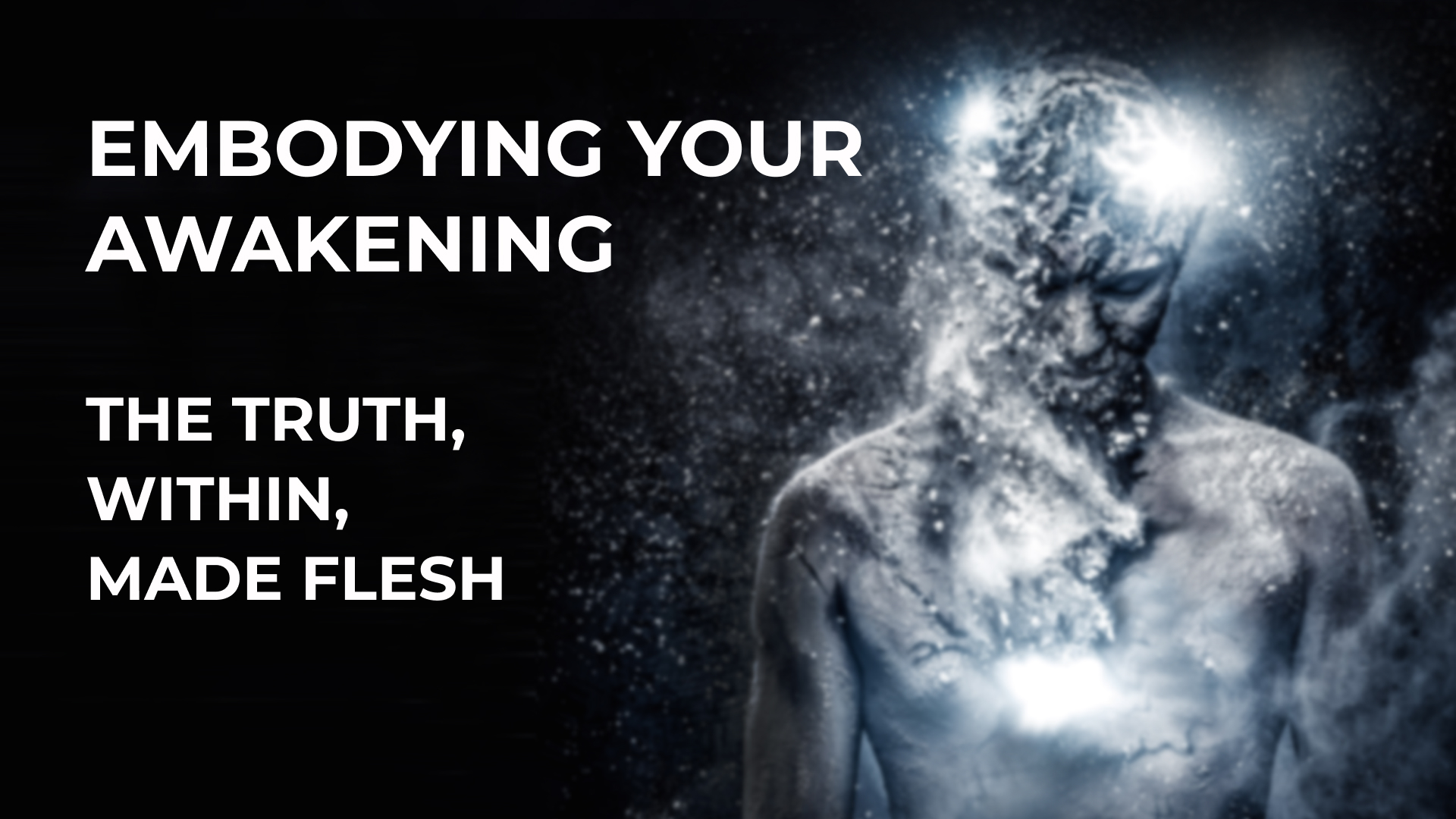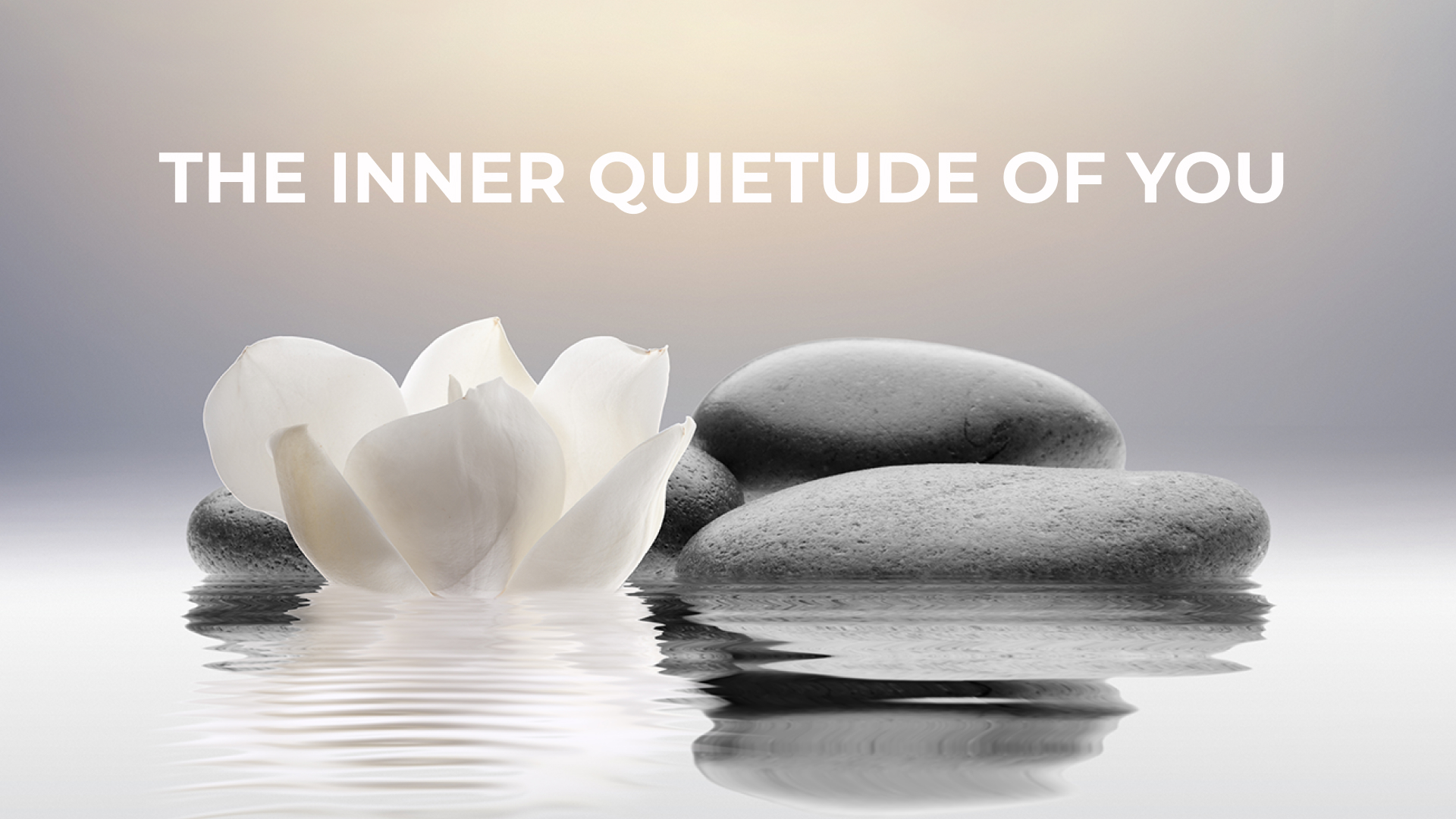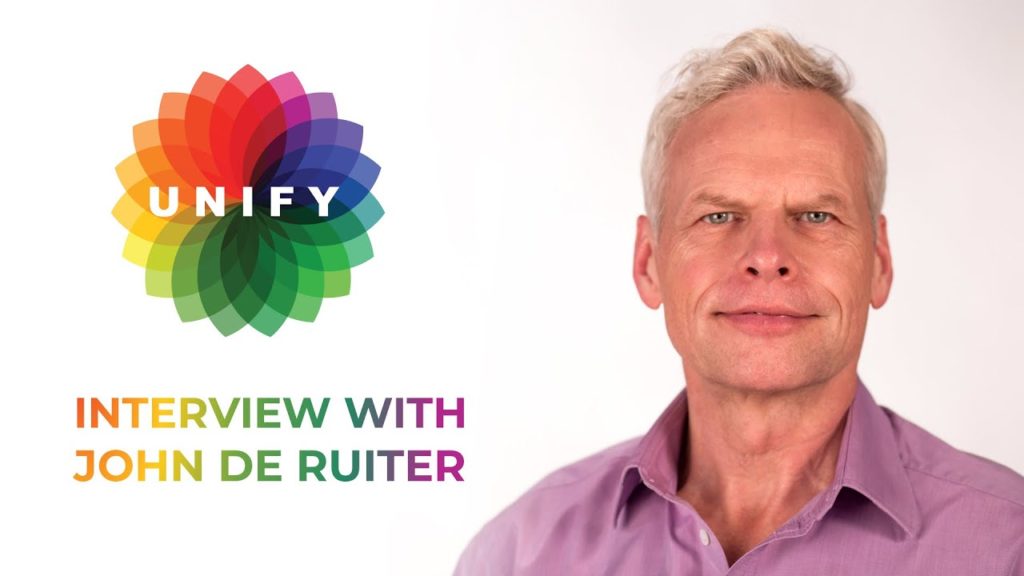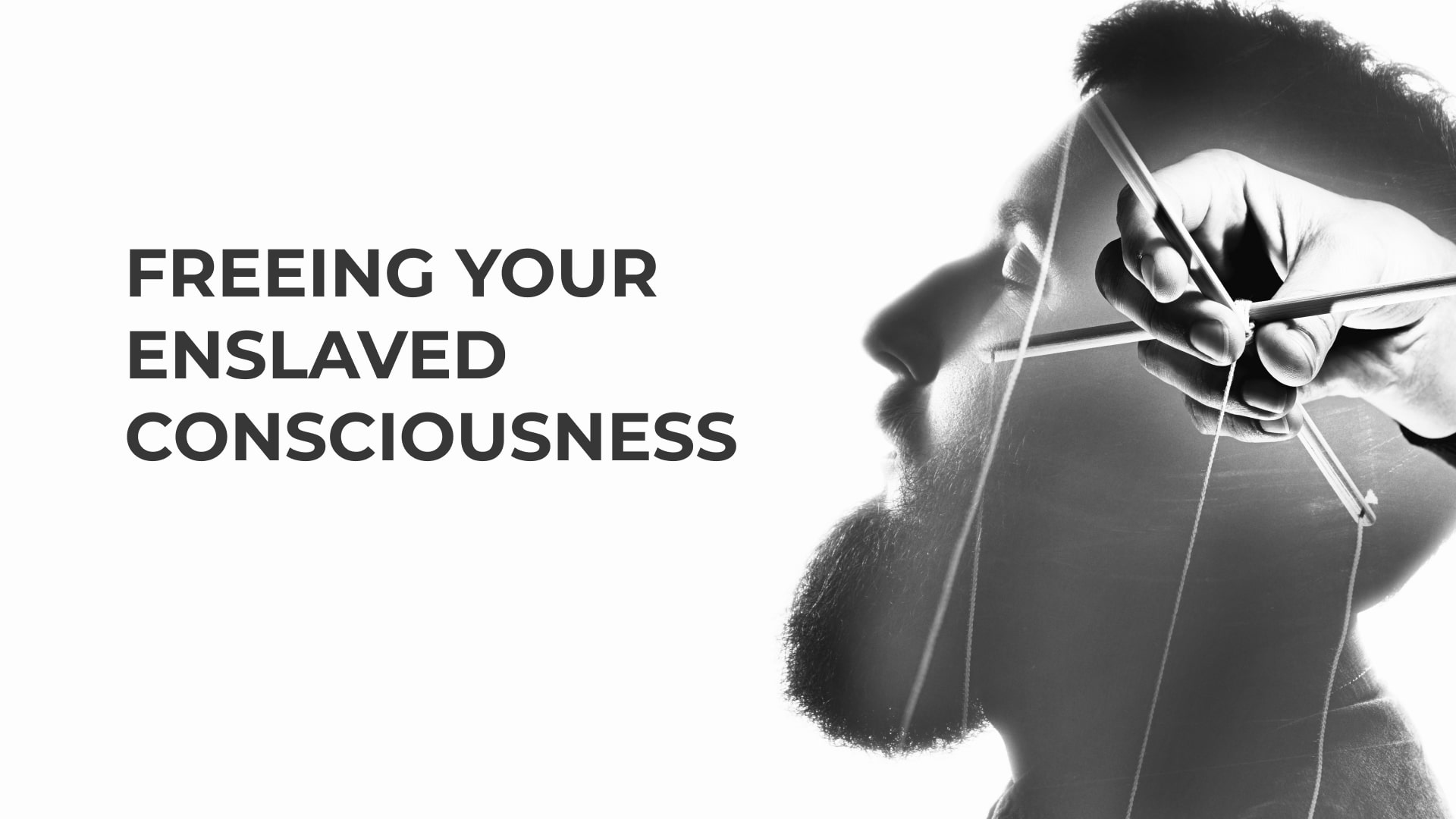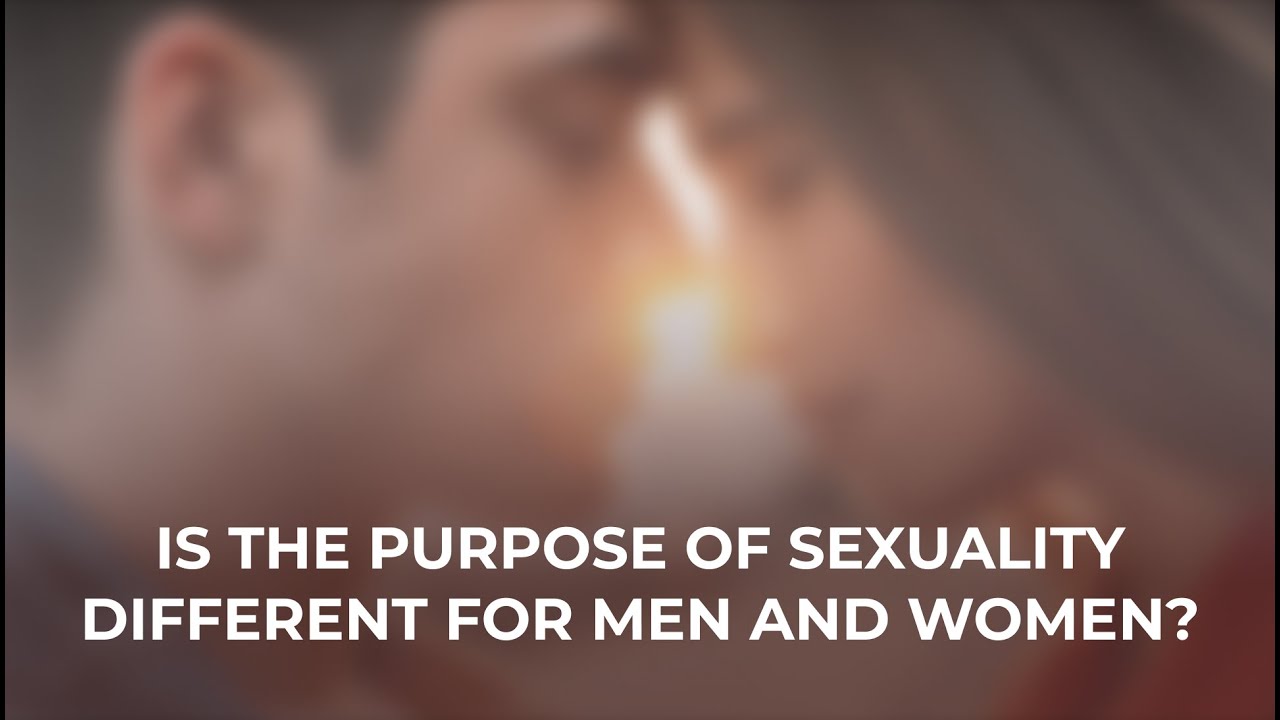Q: Good morning, John.
John: Good morning, Elad.
Q: Can you say more about what a bond between two people is? What is a real bond?
John: A bond is what enables what we really are to be able to stream as meaning into each other, with each other.
Q: Can you say, generally speaking, is that it’s our two beings, the connection between our two beings and not between our two selves?
John: Yes. It’s a connection of subtle movement of love.
Q: So what happens when we relate to our bond first and then to the other aspects of life?
John: As soon as we’re relating to a bond that’s there, we’re relating to deeper levels of meaning than what’s first recognizable with our thoughts, our feeling, our emotions.
Q: So it actually helps us to bring a deeper meaning to the relationship.
John: Yes. It starts us off within a deeper level of meaning in our relating than a regular relating through thoughts and emotions.
Q: So, let’s talk first about two people who are looking for relationship. How can they recognize a bond and see if the bond is a true for relationship? How can they relate to the bond when they start the relationship?
John: First, by not needing to have a relationship. The want and need to be in a relationship or to have a relationship already fixes a state of mind that isn’t oriented to a greater depth of meaning but rather to getting something, having something, wanting something. So if there’s a settledness that is there in not needing to have a relationship, then there’s an openness to be able to read subtle levels, subtler levels of being between two people than just an emotional satisfaction or a mental satisfaction in meeting someone.
You’re already occupied with a much denser and coarser beingness of wanting and needing which is already registering a lack and a closing-in on a positive view of needing to have something. And connected to that is the negative view of not having what you want, so trying to fill something you don’t have.
Q: How can you build the more surface level around the bond?
John: When you have a subtler level of connectivity, that is the connectivity of being between two people and you’re sensitive to that, then that recognition of a bond and the experience of a deeper movement of a bond is all communicated through thought and feeling, emotion. So the deeper levels within are fuelling the surface levels. All of that depth of meaning is brought into the surface, and fully filled-out and appreciated on the surface.
Q: To maintain this relationship you will need to soften all your more surface levels – the person, the self and the heart – to maintain the bond, to maintain your relation to the bond?
John: Yes.
Q: So actually it means that, when you move in it this way, the relationship helps you to shift toward your being.
John: If both are valuing opening and softening more than acquiring meaning or being able to secure and keep meaning: yes.
Q: What do you mean by “acquiring meaning”?
John: Such as having a relationship, the meaningfulness of having someone that close to you in your life, so it’s acquiring the meaning of a relationship or being able to keep a relationship.
Q: What’s the right way to relate to meaning in relationship?
John: By starting out with meaning that’s already there. The meaning that’s there is present within even the lightest movement of a bond, the lightest connectivity of being. There’s meaning present. It’s already perfect and complete, and as you settle into that, the depth of that meaning is drawn up into your thinking, into your feeling. So there’s a resource of meaning that’s all there beneath the surface.
Q: So, actually, what you’re saying is we don’t need to develop the relationship in a normal way. You think the bond is there; we just need to hold it and to actually see that and recognize that first?
John: Yes. And use the space within our minds to be able to convey that depth of meaning that’s already there.
Q: Is it true to say in all the other topics in our life that the meaning is already there?
John: Yes, but that requires a depth of listening, within. If we are really listening within, the noise level of our minds quietens and we’re able to recognize a level of meaning that’s a lot deeper within than what we’d be holding as a concept or as an emotion.
Q: So similarly, like we talked before, we’re sitting here so the meaning of me with nature or me with you is already here and I just need to see it and to hold it, and to give it space.
John: To relax. The more relaxed we are the more intrinsic meaning is to us. As we relax, we are relaxing into meaning.
Q: Usually you have to do things in your daily life: you have to go to work, you have children, and sometimes because of the need of action, the self and the person can bring up patterns. So what can people in a relationship do to keep holding this very gentle meaning of the bond?
John: By relating to dearness that is right there in the relationship. The dearness puts us into our openness of heart, brings us into our humanness. When we’re relating to dearness in a relationship, we’re relating to that deeper affection – a deeper feeling that’s immediately nurturing and connective. As soon as we’re relating within that dearness, we can really see each other instead of seeing each other through what we want and what we need from the other person.
Q: Is that an emotion? Am I feeling the dearness or is it something that I just know the frequency of?
John: It depends how subtle you go, within. Dearness is easily felt, so if you’re looking for a feeling and the dearness is up there on the surface, you can really feel the dearness. If you can’t feel the dearness, then all you need to do is be gentled and quieted within. As you’re quieted within then you start to perceive a level of connectivity that you know is real and that touches into relating in a way of dearness to the other person, where you realize that person is dear to you even though there may be a difficulty on the surface that registers in your thinking and in your emotions.
Q: Let’s just give a practical example: let’s say we have dinner and somebody needs to wash the dishes, so there’s a contraction in the self. Just as an example, when you’re in that place, how can you relate to dearness?
John: By liking being together instead of looking at a task at hand that you don’t want to do, and you’d rather the other person do it. Then you start to use your thinking to demonstrate that maybe it’s more suitable for the other person to do the dishes than for your self because you’re busier or you have reasons to support that you shouldn’t have to. If there’s an enjoyment of being together, then there’s an inter-relatable feeling of closeness. With that kind of closeness, that dearness, there’s an openness of heart which opens the thinking and you’re able to think more reasonably and more rationally: that either one of us can do the dishes, and because you’re in the dearness you’re already in a flow of “oh, I can do it” or “we can do it together”or you start to think in a way that’s open instead of thinking in a way that’s closed-in on; that you don’t want to do the dishes and you’d rather the other person do the dishes.
Q: Is it something you can develop, this relationship to dearness? The more you use it the more it’s natural to you?
John: Yes.
Q: And if someone is now in an emotional pattern and is upset about his or her partner, it’s hard for you to relate: you can remember you like the person but you don’t like him right now, so how can you relate to the dearness in that place?
John: As soon as you’re caught in a contraction of emotion and relating to want or need
Q: You’re out of there!
John: To just be quieted within and you start to remember that it’s meaning you’re actually interested in and it’s the closeness between the two of you that is why you’re actually together, so then you relate to that closeness which is an opening of the heart instead of relating to what you want in the relationship, or what you want from the other person, which closes the heart.
Q: So you started that with saying you’re related to meaning, so first you have to relate to your relation to meaning before you relate to the other person?
John: It’s not relating first to meaning and then the other person. It’s relating to meaning in your self and in the other person, so there’s a connectivity of meaning between the two of you just because you’re relating to meaning that’s there, which immediately brings in the bond, or you’ll be relating on the basis of emotion – positive or negative sentiment.
Q: What do you mean by “meaning in your self”?
John: What’s immediately, subtly, experienced as meaningful: the meaningfulness of just two people being in proximity, and that there’s a nurture in being together so there’s a deeper, quieter meaningfulness.
Q: From what I understand, as awareness, when you relate to an emotion or pattern it’s also, maybe in a distorted way, meaningful for awareness. This pattern also moves meaning, so how can you, as awareness, differentiate between this kind of meaning, which you can also believe and make your life or this moment about it, or as awareness to connect to the real meaning of the dearness of the relationship, or the meaning of the bond?
John: In our selves we relate to meaning through polarization, so a gain and loss. That registers immediately in our emotions. When we relate on a subtler level from within the heart or the being, we’re relating to meaning that isn’t polarized, so what there is of the meaningfulness is full of nurture. So there’s love that’s in it; there’s dearness that’s in it; there’s the opened humanness that’s in it; there’s a connectivity, a streaming on a deeper level between two people where you can feel meaning without holding anything or even understanding something.
Q: So it’s as if you can have a monitor of the goodness or the meaningfulness, just to see now it’s meaningful, now it’s not meaningful and then you know if you’re in the right place.
John: A little bit! If you’re relating to dearness being there or dearness not being there, that’s like a bit of a monitor. Or nurture being there, or nurture not being there.
Q: And when you’re in a pattern and you’re held in a pattern, there’s some contraction in you and how, from that, can you just move to dearness? I think that’s a place that most of us know: you don’t want to be this way towards your partner or towards anybody else, but you still are; you’re still doing it.
John: If there’s the interest to be together and be close together and the experience while being together is being caught in an emotional pattern, then you could say to the other person: “let’s have a time out”, or “I need a time out” and “give me just five minutes and I’m going to go away and I’m just going to breathe, and I’m going to be right back and we’ll continue.”
Q: So is that a good way?
John: Yes.
Q: Because usually you say you shouldn’t have a personal space in a relationship.
John: A private space.
Q: Sorry, yes. A private space.
John: That’s not having a private space: that’s really opening into a non-private space where as soon as you say “I’m going to go away for five minutes and I’m going to just breathe, or I’m going to settle and come back and we can really continue and meet in a way that’s going to be more meaningful instead of being caught in a pattern”, that’s stepping out of a private space instead of going into a private space.
Q: So on the surface you need some time out but then you actually open so you can bring the other person more in?
John: Yes.
Q: What about all the sexual movement between the couple? How can a couple bring the deeper meaning to sexuality?
John: The same way: by instead of relating to want and need, instead of relating to loss or gain, relating to dearness, closeness, the meaningfulness of being quieted together where you’re able to read each other on a heart level. So meaning is more subtle on a heart level instead of stronger and more active on an emotional level.
Q: Just to relate to the other example you just gave, is it true to give space, to give time to be intimate together? If you have this strong emotion to be together sexually you’ll make time, but if you take those strong emotions down there’ll be less of a pull to be together? It’s like you need to find a different way to come together.
John: Then there would still be a pull to be together but it’s going to be based on nurture, based on dearness; it’ll be subtler and that many subtleties can all come in to create that draw and that pull.
Q: What would happen in the situation where one person says: “I’m in the mood” or “I’m not in the mood”? What about all of those levels of emotion or pull between two people?
John: If you orientate to dearness, dearness isn’t governed by a mood. With dearness there aren’t the various emotional and mental attitudes present in your self and toward the other person. With dearness the attitudes and the moods settle and subside, and what remains is a felt, subtle, nurturing closeness.
Q: It can be that you don’t even feel like having a physical movement now? You just relate to the dearness between you and your partner?
John: The dearness that’s there between you and your partner is still physical, but it’s a subtler level of physicality. It registers in your nervous system; it registers in your feeling; it registers more subtly in your emotions. As soon as the dearness is there, then on a subtle physical level you’re already being connective, so that dearness draws you together and you’re registering the physicality; the quietness within the physicality is already there. So there’s the feeling of being close.
Q: You say that the sexual movement in our body connects us to our being or moves our being in our selves.
John: If your sexuality is connecting into your heart: yes. If your sexuality connects into an appetite in your body and an appetite in your self, then that’s going to be more volatile.
Q: So sexuality actually can bring you deeper to the being or take you out of the being?
John: Yes. If your sexuality connects in to your heart and what’s deeper then it draws up what it is connecting to. If your sexuality connects into your level of coarser appetite, then it’s those appetites that are orienting you within your self, so you are then all about those appetites.
Q: The way we talked before about being in nature, that everything is already here, can you say the same thing about sexuality? That even if you are not having sex right now, the sexuality is already here and you can relate to it during your day without being sexual?
John: Deeper sexuality has all to do with subtle movement of your being and delicacies of being, so within deeper sexuality you’re already in communication, such as with dearness. Dearness is a movement of your being within your humanness, so you’re experiencing that direct, subtle movement and communication of being.
Q: So we can say we’re moving our deeper sexuality during the day even though we are not having physical …
John: Yes.
Q: And would that register only as dearness or could it register differently? Can you feel sexual feeling or love?
John: Love, and a deeply meaningful sense of connectivity.
Q: So actually to be in real sexuality, or in deeper sexuality, it’s like something that happens all the time between the couple?
John: Yes.
Q: And it will maintain the presence of dearness; deeper sexuality is a dearness, how to relate?
John: Yes. Then as soon as you meet each other you’re already full, or there’s a presence of subtler meaning, nurtureful meaning that’s already in you, already streaming in you, so as soon as you meet each other that streaming immediately finds its place with the other person instead of meeting together and then having to engage quality time to find that meaning.
Q: And what happens in the physical act, like when you move in deeper sexuality during the day or during your life, what is specific to the physical act? Is it something specific?
John: It’s being physically connective. If you’re relating to want and need, gain and loss, relating to a belief system within your mind and your emotions, then the physical act makes concrete what it is that you’re relating to. It makes physical your sense of need – what it is that you want. When you’re relating on a subtler level of dearness and subtler connective meaningfulness, then being physical together is making your being physical and your heart physical. It gives whatever it is that you’re relating to on deeper, subtler levels, or coarse surface levels, it gives that more form and reality.
Q: What does it mean that your being is more physical?
John: Subtle, very subtle movements of love, that when you’re being physical, being attentive to those subtle movements of love, love is drawn up into your body and is moved physically between the two of you, so the physicality is relating to love instead of physicality relating to an emotional or physical gratification.
Q: And it actually means the more it is part of your nervous system and of your self and person it’s easier to maintain it? You don’t need to re-open; it’s already there.
John: Yes.
Q: Is that related to humanness?
John: Yes.
Q: So the more we keep the deeper movement, the deeper sexuality, the dearness in a couple, actually there’s a form building in our self, in our body, in our nervous system of dearness and humanness.
John: Yes. There are levels in the nervous system. Whatever it is that we are relating to, whatever level from which we relate engages that level of our nervous system. When you’re in your personality you’re engaging a different level of your nervous system than when you’re in your self, or even deeper than that, when you’re gentled and quieted in your heart.
Q: And those deeper levels are already there, or we need to develop them?
John: They’re already there, but they can be there already developed because you live by them, or not very developed because they’re not very engaged.
Q: And how can you explain humanness? What is humanness?
John: Your humanness is your capacity to be intimately connective, such as your capacity for compassion, empathy, affection.
Q: And is that an unseen form, like the being? Is that in your nervous system? Is it between us? How would you explain that?
John: It’s inherent to openness and softness of heart. It’s like the underside of our selves that is able to easily come up into our selves. When we’re quieted within, that brings us in to our deeper selves, which is congruent with our humanness, whereas the surface of our accustomed selves may not have much humanness in it, particularly if we’ve dehumanized our selves by relating to negativity in our selves throughout the day.
Q: And between the level of the heart and in the self there is a level of humanness?
John: In the quieted self, as we drop down into a deeper level of our selves, that is more like our heart than the underside of our selves, our humanness easily seeps up into our selves and changes the level of our experience.
Q: Is humanness like dearness?
John: Yes.
Q: And is my humanness and your humanness, is it a field of humanness between us when we connect?
John: Yes.
Q: So, let’s say in a couple and other relationships there can be like a field of humanness that is also always there?
John: Yes.
Q: And when this field is present so, also, the dearness will flow more naturally.
John: Yes.
Q: So it is a kind of working on your relationship to build those deeper levels of dearness and of humanness, and then the relationship has a deeper form.
John: It has a deeper form that isn’t dependent on moving directly into a concept of quality time: that you can be just with each other, doing whatever, and if you’re dropped deeper into your self, where your humanness is being drawn up into your experience, then your connectivity that’s there by virtue of your humanness is filling whatever it is that you do. So you can be washing dishes together, doing something that’s considered maybe less meaningful because it’s a task being performed, but because you’re both in your humanness and your dearness then you actually like being together. There’s a nurturing affection that is there between the two of you while you’re doing the dishes.
Q: You don’t need a two-hundred dollar meal for that!
John: Yes.
Q: Is that bringing the bond into a form?
John: Yes.
Q: When, as a couple, you’re relating to your subtleties and to your heart, to your being and to dearness and humanness in the couple, what happens after a while is the bond has a form in your relationship.
John: Yes. And then that also puts you into what is like a real level of relating or a real relationship versus a conditional relationship of emotions being satisfied.
Q: When you have a relationship like that, that has form, does it affect you in your deeper movement, life, your relation to your being?
John: It affects your whole life. If you’re in a real relationship then everything else that you’re doing in life is already going to be following through in the tenor of your relationship. That carries through into your other relationships, it carries through into everything that you’re doing in your day because that’s already the level from which you relate in your relationship.
Q: So if you put all your attention in your relationship to build this kind of relationship, it will actually affect all your life?
John: Yes.
Q: And your relationship to your being.
John: Yes.
Q: So that’s a good reason to have a relationship, a right reason to have a relationship. It’s a place around which you can build all of your life.
John: To share being in: being together, being connective instead of being in relationship to get something from each other.



